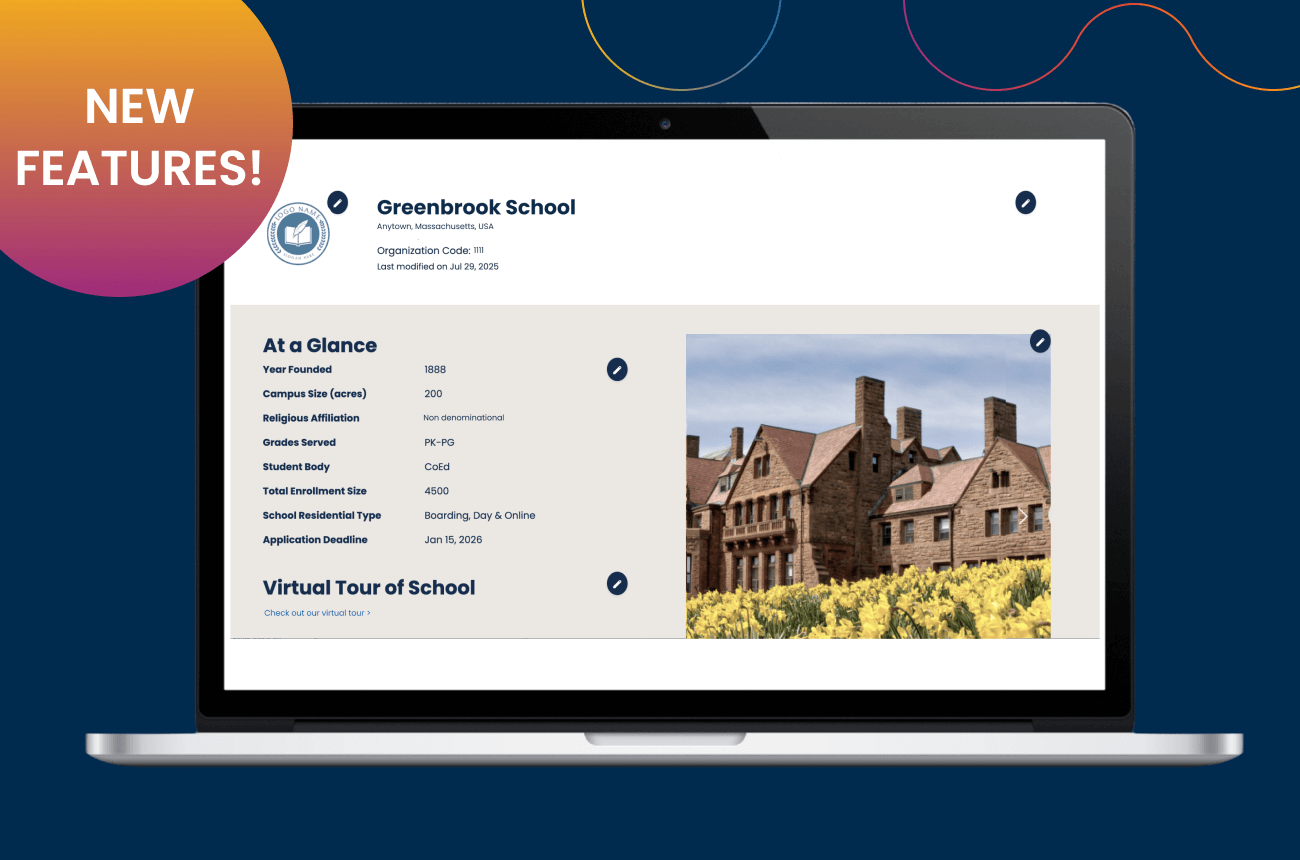Let the Reading Begin!

As admission deadlines approach, we are pleasantly reminded that so many families are seeking the many opportunities independent schools offer. As you embark on reading season there are many ways to stay on track:
- Gather your team and share with them the process that works best for your school.
- Remember that this is a critical time to keep track of all correspondence, as conversations regarding applicants can easily get lost in the hectic days to come.
- Make sure that the expectations are clear and you have a calendar in place, so that every reader is able to accomplish their goals before the deadlines. Even when you have a calendar, check in periodically.
- This is an anxious time for families; remember to help them through this process as much as possible.
- For the other members of the school community, it always helps to share with them the way the reading process works. At Cushing, people are always curious about the process - How many applications do we have? How does the applicant pool look? Be proactive and share with them what you can.
It can sometimes be both fun and educational to give a sample profile to members of your community so that they can better understand the challenges your admission office faces. With an increase in applications, there is most likely an increase in financial aid requests as well. This is a challenge that many of our schools are facing, and we should continue to have conversations about ways in which we can tackle this issue.
Reading season makes for long days, and busy readers will need periodic reminders about why we do the work that we do, to keep their energy and motivation strong. Try:
- Reviewing students that had interesting profiles and have had great success at your school.
- Reiterating to readers that an education at your school is a special opportunity that the family should be really motivated to receive.
- Reminding readers that sometimes families are complicated—remember at the end of the day, you have to think about the student and what’s best for them.
- Asking them to think of all the students who will benefit from an experience at one of your schools.
- Pairing new readers with experienced readers so that they can learn the skill set needed to really select the right “fit.”
Consider the following:
- Know your school. If you read an application from a terrific, highly academically gifted swimmer but know that you don’t have a swim program, your school may not be the right fit.
- Study your data—are there certain types of students who tend to have more success in your environment than others? This is terrific data for your readers to have as they embark on the process.
- Help the readers understand how to read score reports; this may be a really new, unfamiliar area for them.
- Do interviewers rate their interviewees differently? Is there one interviewer who loves everyone and the one who is rarely wowed?
- Encourage your school community to share with you their needs for various programs, but try to avoid making promises.
- Help your office communicate with placement counselors to determine if your school is high on any of their applicants’ lists.
At the end of the day, our goal is to find the right students for our schools. That said, take a deep breath and happy reading!
Resources:




